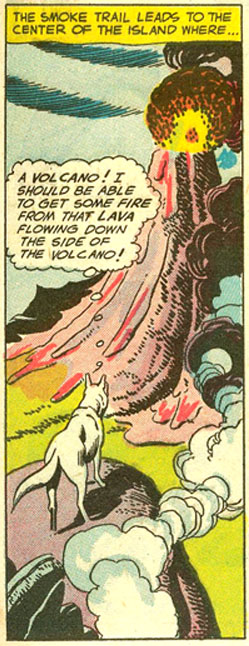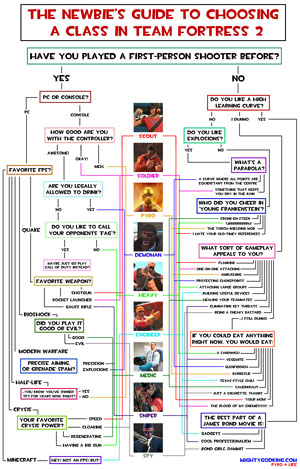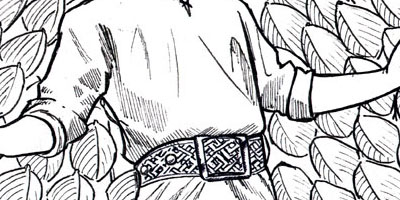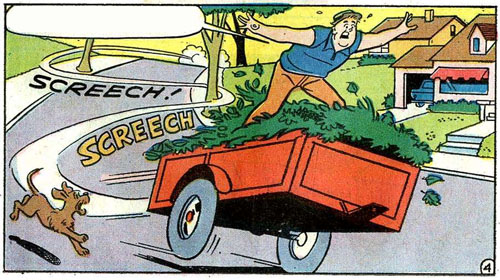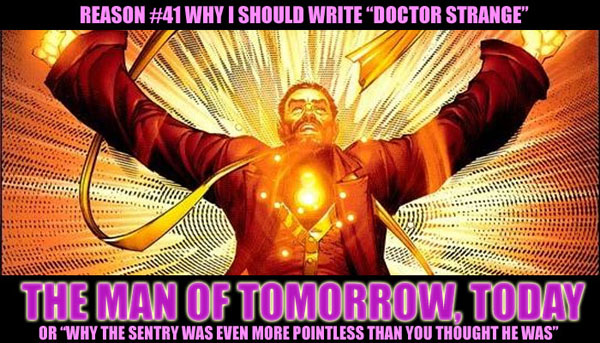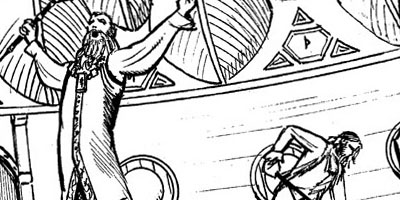Allegretto asks:
How about a list of recommended TV shows? Relatively new (or otherwise)? I know you do televisualist, but that’s usually commenting on whatever is on in any given week and it also seems to strive for as broad a scope as possible, it’s not really the same as a “TV you should totally see” list.
True, but the thing about “TV you should totally see” lists is that they end up being sort of redundant. I mean, am I really going to be the umpteenth person to write an article saying “you should really watch The Wire“? I wouldn’t even be the first comics blogger to write that. You need to come at it from an angle that’s at least vaguely fresh, because Entertainment Weekly does a “must watch” list every frigging year.
(Incidentally, you should really watch The Wire. All those people calling it the best show in television history? Are correct.)
So here’s my angle: call it the Baseball Team method. Nine categories, and I’ll name one show for each category.
Sitcom (three-camera)
Sitcom (single-camera)
Sitcom (British)
Drama
Drama (British)
Dramedy
Animated
“Genre”
Wildcard
There. There’s your model for recommending shows from now on. Comedy in three distinctly different styles, none of which is superior to one another – the traditional three-camera setup, the more modern single-camera comedy, and the Britcom, which by virtue of its seasonal length and cultural difference is distinct from either American model. Hourlong drama, hourlong dramedy, and Brit drama are likewise three wholly different beasts. Animated shows and genre shows genuinely differ in production and result from their less flamboyant relatives. And finally, a wildcard slot so if you can’t make up your mind between Buffy and Firefly, you can include both. (Although if that’s your big sticking point, maybe you should broaden your horizons.)
And you can’t pick The Wire, because that is cheating. Also: no Doctor Who, a show that I love but which has been enthusiastically recommended to everybody in the world now.
And my team?
Sitcom (three-camera): Newsradio. Currently available in a “complete series” boxset on DVD that is quite cheap at the price. Newsradio is a master-class in farcical comedy; its character interactions are rich and complex (one could write essays on the odd relationship of Dave and Mr. James), its cast thoroughly skilled and its writing near-perfect. Do not ignore the fifth season simply because of the tragic death of Phil Hartman; Jon Lovitz is an able replacement, the short run of Patrick Warburton as Johnny Johnson is one of the show’s best longer storylines, and some fifth-season episodes are simply brilliant even for one of the best sitcoms ever made.
Sitcom (single-camera): Arrested Development. Which, frankly, almost deserves to be sidelined for the same reason that The Wire and Doctor Who are sidelined, but it’s my game so hell with it. Arrested Development is one of those shows that writes its jokes in layers: the first time you watch it you catch the obvious jokes, then the second time you watch it you start to see the subtler ones, then the third time through you start seeing the cross-references and callbacks to jokes they’ve already written in previous episodes, and so on and so forth because this show was written more comprehensively than any comedy show I can think of.
Sitcom (British): The Inbetweeners. I decided to go with something recent here, although I was very tempted to pick The Young Ones instead – but The Inbetweeners has two things in common with that classic show. Firstly, they’re both very funny. Secondly, they’re both excellent examples of shows that simply could not get made in America. The Inbetweeners‘ central conceit of “these are the normal guys in the middle of their school’s social system, you know, the ones who aren’t total losers but also aren’t cool kids, the ones who just get by” is the sort of thing that American TV – prone to hyperbole as it is – would utterly screw up if given the chance. The Inbetweeners is funny, but it also feels like growing up in a way that many comedies about high school never do, simply because most of us were inbetweeners, when you get to it – desperately trying to get laid and failing, trying to become popular and failing, trying to rebel against the system of popularity and failing at that too.
Drama: Deadwood. David Milch’s three-season Western ran too short for almost everybody’s liking, but it really is magnificent: it’s the story of how civilization is created from scratch, how criminals are often the ones who demand social stability in order to ensure their safety, how law and politics are created and soon corrupted, how corporate capitalism comes to dominate any economic system given the chance. Plus there are cowboys and truly fantastic violence and lots of swearing (which only serves to season the fascinatingly great dialogue) and Ian McShane and Timothy Olyphant basically ensuring their careers forever.
Dramedy: The Unusuals. I know you would’ve expected me to go with The West Wing or maybe Gilmore Girls here, but I’m picking this single-season offering from two years ago which was cancelled far too soon: it’s a great cop show in that it actually shows cops doing everyday cop things. Not just homicides and drug deals and all that fancy stuff; the boring procedural work and routine calls that cops do all the time, except it made them entertaining. Great cast, too: Jeremy Renner right before he got big, Harold Perrineau, Adam Goldberg. A great little single-serving of TV.
Drama (British): Luther. Currently in its second season, Luther is the polar opposite of The Unusuals. Rather than ground itself in the mundane, Luther takes the elements of cop shows and raises them to nigh-mythic levels: Idris Elba’s title character is a bruised and battered angel, his nemesis is all but a Moriarty, his villains are deadly and just dank in a way that is exceptionally pleasing to watch. Luther is grim and serious and it never, ever tries to go for a cheap laugh to deflate itself, and in these days that’s something of a rarity – even when a character in Luther makes a clever quip, the viewer’s response is not to laugh but only to nod intently.
Animated: Eek! the Cat. Probably one of the most absurd and insane kids’ shows to ever air, and indeed often incredibly cynical, but balanced by the protagonist: Eek himself is a genuinely admirable sort of cat, noble and well-intentioned and brave, and his never-flagging good nature makes all the horrible things the show does to him all the funnier for that, making this quite possibly the only animated show to ever truly explore the comic possibilities of martyrdom as opposed to simple violence. The first season is a classic; thereafter it drops off as the show added additional characters like the Terrible Thunderlizards, who weren’t anywhere near as fun as Eek was.
Genre: Farscape. It was a tossup here between this and Star Trek: Deep Space Nine, and while I think DS9 hits greater heights, i think Farscape is more consistent because it’s a show that finds its voice early on and sticks with what works for it, which is high-quality space opera in the Han Solo end of Star Wars‘ tone. This show made a number of nerd careers, not least Ben Browder and Claudia Black (both of whom went on to work in the Stargate franchise, effectively playing their Farscape characters but with different names), and worked imaginatively with a relatively low budget thanks to the brilliance of the Henson Company’s effects wizards. The ending is a bit rushed, as the show had to compress the planned fifth and final season into a four-hour miniseries, but it still works. Farscape was playing with genre conventions early on and never stopped for its entire run, and its odd quirks (including Harvey, the villain inside the hero’s head) made it all the more unique.
Wildcard: Titus. Christopher Titus’ eponymous comedy, a mix of single-camera and three-camera, was dark. It was very dark. His character’s mother was a violent, paranoid schizophrenic, and the show never lost sight of the seriousness of that fact even while getting maximum utility out of it for comedic purposes by letting Titus both love and fear her simultaneously; his father, played by Stacy Keach (in probably that actor’s best work ever) was a womanizing, emotionally abusive drunk but also a weirdly dedicated father. Titus is one of the most emotionally complex sitcoms ever made; it’s also brutally funny and sometimes uncomfortable to watch. And that is why it is great.
